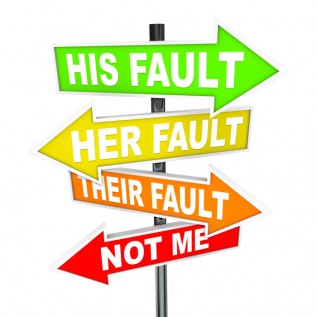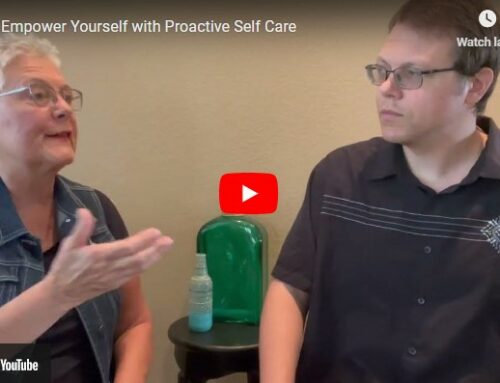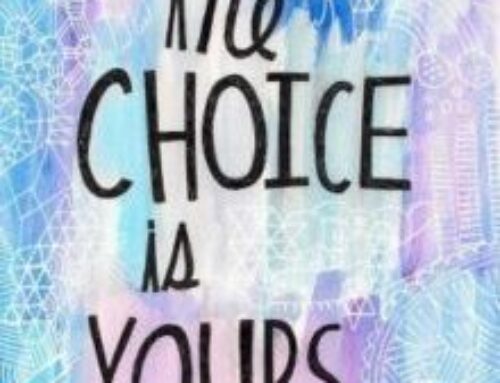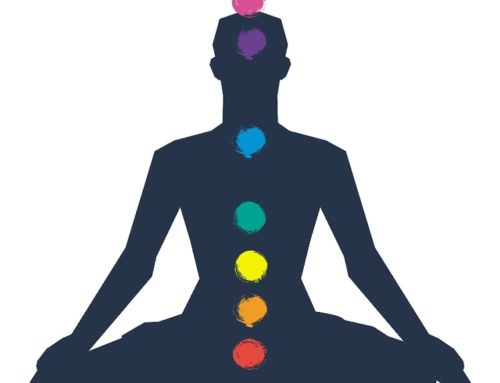by Dr. Tina Marcantel
 In my last article on energy medicine I talked about the effects that can come from identifying with negative self-images. These self-images can be the result of false beliefs about ourselves that we bought into at some point in our lives, often because someone in authority over us or someone we respected said or did something to us. But even though someone in our past (or perhaps in our present-day lives) may be the source of these beliefs, it’s important not to choose to blame them for our feelings.
In my last article on energy medicine I talked about the effects that can come from identifying with negative self-images. These self-images can be the result of false beliefs about ourselves that we bought into at some point in our lives, often because someone in authority over us or someone we respected said or did something to us. But even though someone in our past (or perhaps in our present-day lives) may be the source of these beliefs, it’s important not to choose to blame them for our feelings.
When we place blame on others for the way we feel, we actually give away our power to heal ourselves by becoming dependent on others for our emotional well-being. How often have you heard, “Oh, that person makes me so angry!”? In fact, no one can make you (force you to) feel angry. A person may say or do things you don’t like, but it is actually your choice to react with anger. As long as we believe that our feelings are shaped by other people’s words and actions, we give those people power over us to make us feel good or bad.
In the same way, we can take our power back by stopping the blame game concerning false beliefs about ourselves. I often hear people blaming a parent, a teacher, a spouse, or a friend for their own negative feelings about themselves. Instead of getting stuck in the past and saying, “That person made me believe this about myself,” I can take responsibility for my own belief systems.
I gain my power back when I realize that the problem does not lie in the fact that someone said something negative about me—the problem lies in the fact that I believed what they said and came to identify myself with that negative thought. If I get my mind off the person I’m blaming for my feelings it’s easier to forgive them and move on and see the bigger fact that I’ve simply bought into something that’s not true about me.
There is nothing wrong with reflecting on where these thoughts come from; in fact, it’s important to do just that in order to trace the roots of our personal belief systems. I might think, “You know, that’s what my father said to me and maybe that’s the source of my feelings of inadequacy.” But instead of getting into the muck of, “My father was hard on me! Why did he say those things? It’s all his fault I feel this way!” I can choose to look at the bigger picture. I can realize that maybe his father treated him the same way and he was just passing on his own belief systems to me. And I can take responsibility for my own thoughts and feelings and say, “This is what happened, and I believed it. Now I know that what he said about me is not true and I choose to release that thought because it no longer serves my highest good.”
Another benefit of choosing to stop playing the “blame game” is that it makes it much easier to forgive those we think have wronged us. The healing power of forgiveness is amazing. When we forgive, we free ourselves.
Of course, it’s rarely as simple as identifying a false belief about yourself and then simply choosing not to believe it anymore. It is always a process, and it’s good to have tools that you can work with to help the process along. In my next article in this series I’ll introduce the first tool—awareness—and explain why it’s the crucial first step toward identifying and releasing false belief systems. I’ll also talk about why it’s important to approach this process without self-judgment as you get in touch with these feelings.
Related articles:
What Is Energy Medicine and How Can It Help?
Energy Medicine: Identifying with Negative Self-Images
Take Your Power Back by Stopping the Blame Game





